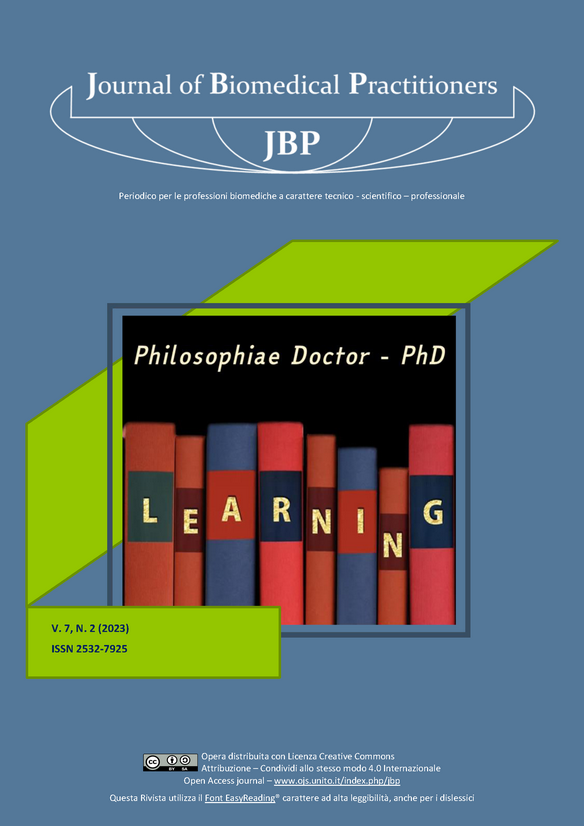Survey with dieticians on Care Management in the field of nutrition.
Main Article Content
Abstract
Objectives
The study explores the knowledge and application of Care Management in a sample of dietitians in order to understand the current limitations and assumptions for promoting integrated nutrition management in chronic patients.
Materials and methods
The exploratory, qualitative and descriptive study was conducted through semi-structured interviews of dietitians working in hospital settings.
Results
Six dietitians were interviewed. The results suggest the primary role of multidisciplinary teamwork (66%) in an integrated approach for the care of people with chronic disorder and also shows the key role of a therapeutic relationship between patients and dietitian (50%) to achieve an increased patient compliance with nutritional recommendations and an increased efficacy of the nutritional intervention. At the same time, the results show organizational criticalities in the hospital setting such as insufficient workspace (50%) and human resources (33%) and therefore less therapeutic time for each patient (100%) as well as a reason for professional dissatisfaction. Finally, results show the lack of cooperation with territorial healthcare services after hospital discharge (33%).
Conclusions
In conclusion, data suggest a reflection on the current critical issues in the healthcare organizations limiting the implementation of the Nutritional Care Management and show, in some areas, the need to develop a better expression of professional skills and a major efficacy of the therapeutic interventions in chronic diseases.
Downloads
Article Details
The authors agree to transfer the right of their publication to the Journal, simultaneously licensed under a Creative Commons License - Attribution that allows others to share the work indicating intellectual authorship and the first publication in this magazine.
References
[2] Ridolfi L. Le professioni sanitarie tra managerialismo e consumerismo: quali traiettorie per un rinnovamento della logica professionale?
[3] Beccaria F, Morchio MG. La salute possibile. Manuale di sociologia per infermieri e altri professionisti della salu-te. Carocci Faber. 2004
[4] Goncalves I et al. Nurse-led care management models for patients with multimorbidity in hospital settings: a scoping review protocol. JBI Evidence Synthesis. 2021
[5] Ministero della Salute. Piano Nazionale della Cronicità. Accordo tra lo Stato, le Regioni e le Province Autonome di Trento e Bolzano del 15 settembre 2016
[6] Robert Wood Johnson Foundation (RWJF). Complex Care Management Guidelines. Michigan Center for Clinical Systems Improvement. 2015
[7] Reynolds R et al. A systematic review of chronic disease management interventions in primary care. BMC Family Practice. 2018; 19:11
[8] Lacey K, Pritchett E. Nutrition Care Process and Model: ADA adopts road map to quality care and outcomes man-agement. Journal of the American Dietetic Association. 2003; 1061-72
[9] Kaegi-Braun N, Baumgartner A, Gomes F et al. Evidence-based medical nutrition - A difficult journey, but worth the effort! Clin Nutr. 2020;39(10):3014-3018.
[10] Luo Z et al. A Comparison of Health Plan and Provider-Delivered Chronic Care Management Models on Patient Clinical Outcomes. J Gen Intern Med. 2016;31(7):762–70
[11] Bradshaw C, Atkinson S, Doody O. Employing a Qualitative Description Approach in Health Care Research. Glob Qual Nurs Res. 2017;4: 1-8
[12] Rubin HJ, Rubin IS. Qualitative interviewing: The art of hearing data (2nd ed.). Thousand Oaks, CA: Sage. 2005

